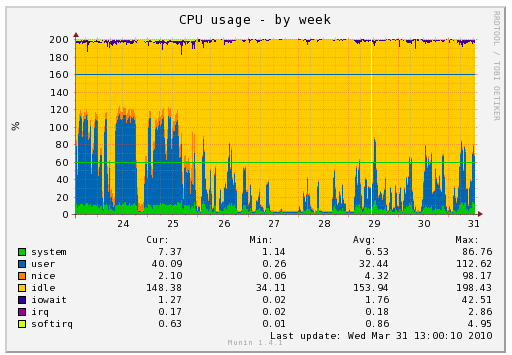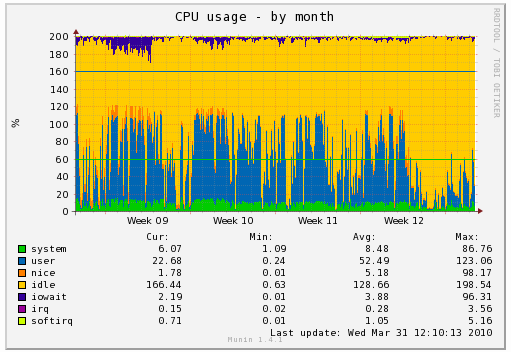Two great, completely unrelated links
Yesterday was a bit of an overwhelming day. After getting home at 1am after a long bus ride home, I was unwinding by catching up on some news and email. I came across these two links, both of which really lifted my mood. The first, Grokking the Zen of the Vi Wu-Wei, talks about a programmer's journey from emacs to BBEdit to vim. This post is a great read in and of itself, but what's really worth it, is the link around the middle of the post to http://stackoverflow.com/questions/1218390/what-is-your-most-productive-shortcut-with-vim/1220118#1220118. This was truly a joy to read. Definitely the best answer I've ever seen on Stack Overflow, and quite possibly the best discussion of vi I've ever read. It taught me a lot, but I enjoyed reading it for more than that. It was almost like being on a little adventure, discovering all these little hidden secrets about the neighbourhood you've been living in for years. Like I said, it was 1am. The second, The Pope, the judge, the paedophile priest and The New York Times, gave me some reassurance that things aren't always as they seem as reported by the media. Regardless of how you feel about the Church or the Pope, it seems that journalistic integrity has fallen by the wayside here. From the article:
Fr Thomas Brundage, the former Archdiocese of Milwaukee Judicial Vicar who presided over the canonical criminal case of the Wisconsin child abuser Fr Lawrence Murphy, has broken his silence to give a devastating account of the scandal – and of the behaviour of The New York Times, which resurrected the story. It looks as if the media were in such a hurry to to blame the Pope for this wretched business that not one news organisation contacted Fr Brundage. As a result, crucial details were unreported.The entire article is worth a read.

